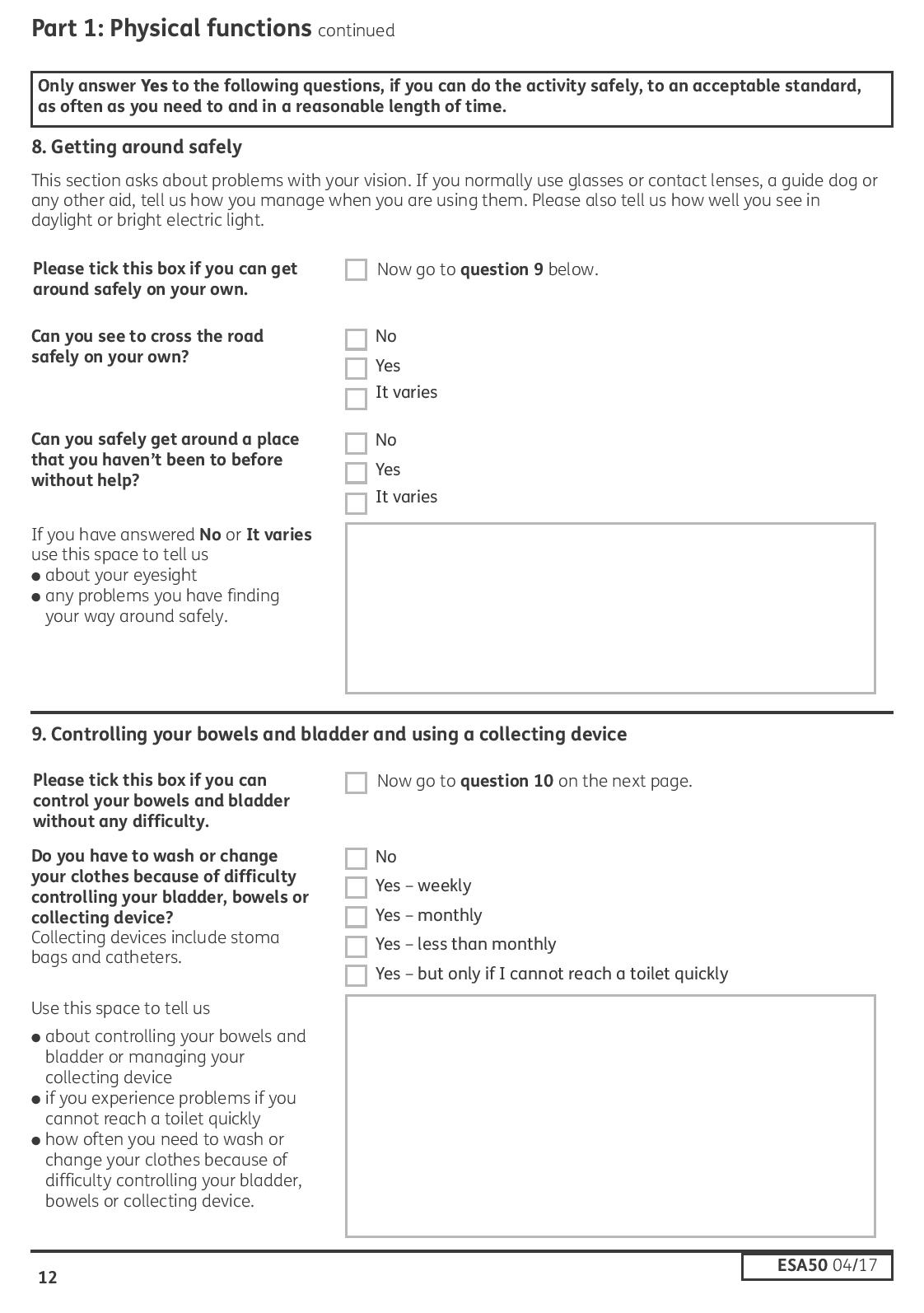Q9 - controlling your bowels and bladder and using a collective device
This advice applies to Scotland. See advice for See advice for England, See advice for Northern Ireland, See advice for Wales
This question is on page 12 of the form - see what it looks like

How to answer the question
This question is about whether you have a problem with your bladder or bowels while you're awake - not while you're asleep.
This question is especially relevant for people with conditions like IBS and Crohn's disease.
You might have problems as a result of your medication or of a different illness or disability - for example if you can't control your bladder when having an epileptic seizure.
You don't need to be embarrassed - it's important that the DWP understands more about your situation so that you can get the help you need.
"Do you have to wash or change your clothes because of difficulty controlling your bladder, bowels or collecting device?"
No
Yes - weekly
Yes - monthly
Yes - less than monthly
Yes - but only if I cannot reach a toilet quickly
If you have to clean yourself and change your clothes due to incontinence, say how often this happens.
If it hasn't happened, but you're worried that it could, or it hasn't happened because you stay near a toilet, you should tick the last box.
If you can manage your condition with incontinence pads, for example, you should tick "no". If there's a reason why you don't use them, or if you sometimes still have to change your clothes tick "yes" and explain in the box.
What to write in the box
It's important you tell the DWP more by explaining your situation in the box.
You should explain things like:
what happens if you can't reach a toilet quickly
how often you need to wash or change your clothes because of difficulty controlling your bladder or bowels
whether you carry spare clothes around in case of emergencies
if you take medication to control your bladder or bowels, and whether it works
the problems you have if you want to go out - for example if you need to stay close to a toilet to avoid accidents
how often you have flare-ups, for example if your Crohn's disease is usually well controlled with medication, but you get severe diarrhoea once every 6 months
If you have a condition that changes a lot (for example irritable bowel syndrome), it's important to tell the DWP as much as you can about how it affects you.
You should explain your symptoms, and how they can change day to day, or month to month.
Sam says: "Since the accident I find it hard to control my bladder, and I feel anxious if I'm not near a toilet or I don't know where the nearest toilet is.
I mainly stay at home because i'm worried about losing control of my bladder if I'm out - it's happened before and it's so embarrassing. If I have to go out I take a change of clothes in case it happens. It's awful and it makes me feel like a child."
How the DWP assess this question
The DWP look at a list of statements called 'descriptors'. They'll give you a number of points depending on which descriptor applies to you.
The DWP add together all the points you get from the whole form. This means you can qualify for ESA even if you don't get all the points for this question.
Descriptors for question 9
| Descriptors | Points |
|---|---|
|
Descriptors
9 (a) At least once a month experiences: (i) loss of control leading to extensive evacuation of the bowel and/or voiding of the bladder; or (ii) substantial leakage of the contents of a collecting device sufficient to require cleaning and a change in clothing. |
Points
15 |
|
Descriptors
(b) the majority of time is at risk of loss of control leading to extensive evacuation of the bowel and/or voiding of the bladder, sufficient to require cleaning and a change in clothing, if not able to reach a toilet quickly. |
Points
6 |
|
Descriptors
(c) Neither of the above apply. |
Points
0 |